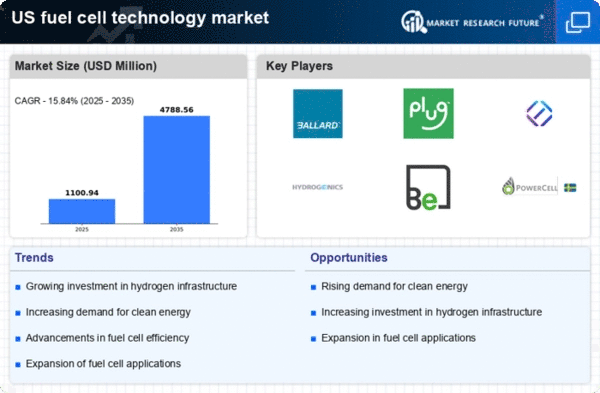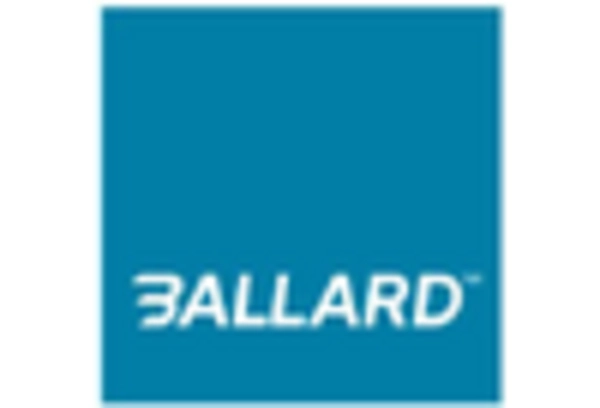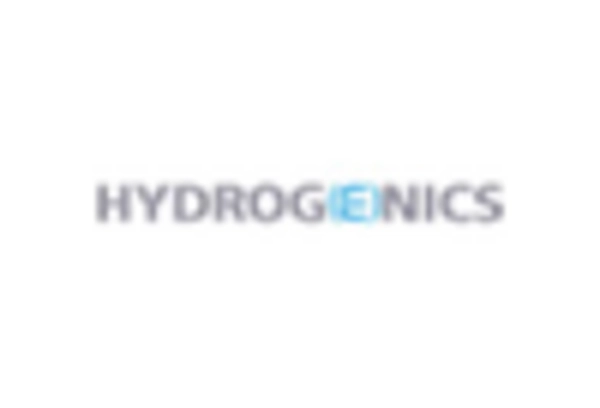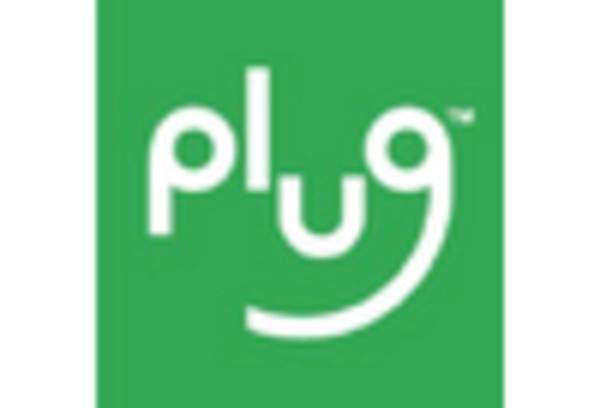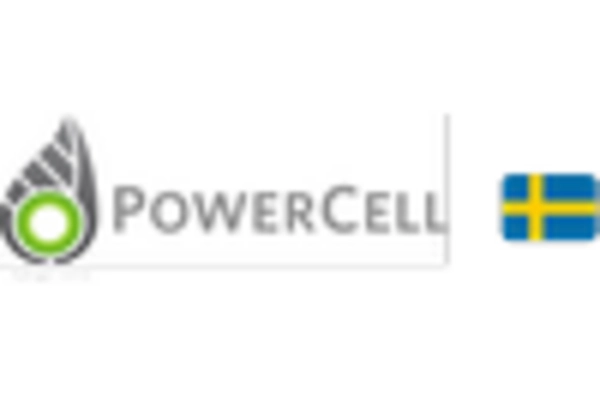Expansion of Hydrogen Infrastructure
The fuel cell technology market is likely to experience growth due to the expansion of hydrogen infrastructure across the United States. As hydrogen becomes a more viable energy carrier, investments in production, storage, and distribution infrastructure are increasing. This development is crucial for the widespread adoption of fuel cell technologies, particularly in transportation and industrial applications. The U.S. government and private sector are collaborating to establish hydrogen hubs, which could facilitate the growth of the fuel cell-technology market. With projections indicating that the hydrogen economy could generate over $100 billion in revenue by 2030, the establishment of a robust hydrogen infrastructure is expected to significantly enhance the market's prospects.
Increasing Environmental Regulations
The fuel cell-technology market is significantly influenced by the tightening of environmental regulations in the United States. As the government implements stricter emissions standards, industries are compelled to seek cleaner alternatives to fossil fuels. Fuel cells, which emit only water vapor and heat, present a viable solution to meet these regulations. The market is expected to benefit from this shift, as companies invest in fuel cell technologies to comply with environmental mandates. For example, the transportation sector is under pressure to reduce greenhouse gas emissions, leading to a projected increase in fuel cell vehicle adoption. This regulatory environment is likely to drive growth in the fuel cell-technology market, as businesses and consumers alike prioritize sustainability and compliance with environmental standards.
Growing Investment in Renewable Energy
The fuel cell-technology market is poised for growth due to the increasing investment in renewable energy sources. As the U.S. transitions towards a more sustainable energy landscape, fuel cells are being recognized for their potential to complement renewable energy systems. For instance, hydrogen produced from renewable sources can be utilized in fuel cells, creating a clean energy cycle. The market is projected to see investments exceeding $10 billion by 2030, as stakeholders recognize the synergy between fuel cells and renewable energy. This trend suggests that as more renewable energy projects come online, the demand for fuel cell technologies will likely rise, further solidifying their role in the energy transition and enhancing the fuel cell-technology market.
Technological Advancements in Fuel Cells
The fuel cell-technology market is experiencing rapid technological advancements that enhance efficiency and reduce costs. Innovations in materials, such as proton exchange membranes and catalysts, are improving the performance of fuel cells. For instance, advancements in solid oxide fuel cells (SOFCs) are enabling higher operating temperatures and efficiencies, which could lead to broader adoption in various sectors. The market is projected to grow at a CAGR of approximately 20% from 2025 to 2030, driven by these technological improvements. As fuel cells become more efficient and affordable, their application in transportation, stationary power generation, and portable devices is likely to expand, thereby bolstering the fuel cell-technology market. This trend indicates a promising future for fuel cell technologies as they become more competitive with traditional energy sources.
Rising Demand for Energy Storage Solutions
The fuel cell technology market is benefiting from the rising demand for effective energy storage solutions. As renewable energy sources like solar and wind become more prevalent, the need for reliable storage systems to manage energy supply and demand is critical. Fuel cells can serve as a form of energy storage, converting excess renewable energy into hydrogen, which can be stored and later converted back into electricity when needed. This capability positions fuel cells as a key player in the energy storage landscape. The market is expected to grow as industries and utilities seek to integrate fuel cells into their energy management strategies, thereby enhancing the fuel cell-technology market's relevance in the broader energy ecosystem.


